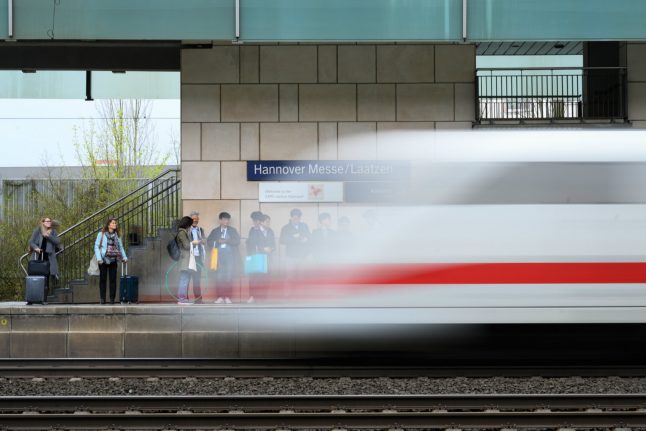“We've just signed the most important programme of modernization ever in Germany,” said Transport Minister Andreas Scheuer, adding that “this is the decade for railway”.
Besides the massive sum stumped up by the state German rail operator Deutsche Bahn will also plow an additional €24 billion into the renewal programme.
The investments will go towards “replacing obsolete installations”, improving access to disabled passengers as well as renovating rail bridges, said Scheuer.
READ ALSO: How travelling by train in Germany is set to improve
Deutsche Bahn chief Richard Lutz called the unprecedented cash injection the “biggest investment and growth programme in the railway's 180 years' history”.
He vowed to improve punctuality – a major turn-off for commuters – but also called for patience as the upgrade will undoubtedly bring disruption.
READ ALSO: What you need to know about Deutsche Bahn's new reduced ticket prices
Getting more people to switch from cars and plains to trains is central to a package aimed at helping Germany ensure its 2030 emissions are 55 percent lower than 1990 levels.
As part of the climate package, train fares will go down but higher taxes will make air travel more costly.
Export power Germany has for years been under pressure to use its huge budget surpluses to loosen the purse strings and invest in crumbling infrastructure.
Batting away the criticism, Germany has in recent months pointed to the ambitious environmental plan to underline the massive outgoings it has pledged for the coming decade.
After two blistering summers and thousands of youths joining school strikes week after week, climate change has shot to the top of the political agenda.
In its battle to cut emissions, car-mad Germany has lagged badly behind in the transport sector, where state-coddled auto giants VW, Daimler and BMW have long focused on gas-guzzling SUVs over hybrid or zero-emission cars.
By Hui Min Neo



 Please whitelist us to continue reading.
Please whitelist us to continue reading.
Member comments